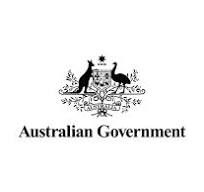OECD broken Laws
- agentorangechild
- Jul 13, 2025
- 3 min read
OECD Guidelines – Binding through the NCP system
Australia agreed to uphold the OECD Guidelines for Multinational Enterprises when it joined the OECD. That includes:
• Protecting human rights
• Preventing environmental harm
• Ensuring access to remedy
• Regulating corporate behaviour linked to harm
By signing on, Australia voluntarily bound itself to these rules and to the National Contact Point (NCP) system for enforcement.
Australia has breached multiple binding obligations under the OECD Guidelines for Multinational Enterprises in my case. These guidelines apply to both governments and corporations and are enforceable through the OECD National Contact Point system. The breaches include the following:
Chapter II – General Policies: Australia failed to respect human rights, conduct due diligence, or provide access to remedy. Despite knowing the harm caused by TCDD (Agent Orange), they refused to investigate, recognise, or respond. This was a deliberate denial of justice to a known second-generation victim.
Chapter IV – Human Rights: My rights were violated through decades of medical discrimination, denial of support, and systemic exclusion from healthcare and compensation pathways. Australia refused to hold accountable the corporations that manufactured and supplied the chemicals that caused the harm. This is a direct breach of their duty to uphold human rights in the face of corporate-linked abuse.
Chapter VI – Environment: Australia failed to implement any form of medical screening, public health warning, or environmental monitoring for TCDD exposure in second-generation civilians. They ignored their obligations under the Stockholm Convention and international toxicological guidance. This failure to prevent and remediate chemical harm constitutes a breach of environmental responsibilities.
Chapter VIII – Consumer Interests: I was never informed of the risk I was born into. There were no warnings, no protective systems, and no public education. Australia’s silence denied me the right to know the truth about my health and its origin. This violates their obligation to protect the health and safety of exposed populations.
Chapter IX – Science and Technology: The government misused scientific and medical frameworks to discredit valid diagnoses and conceal systemic harm. Global studies and WHO data were ignored. My conditions were falsely labelled as idiopathic or coincidental when the real cause was known and documented. This breach undermines both public health and ethical science.
Together, these violations demonstrate a coordinated failure to uphold the OECD Guidelines. Australia cannot ratify international standards, then refuse to apply them when the truth becomes inconvenient. My case is evidence that these guidelines were broken to protect institutions and corporations at the expense of human life, justice, and international law.
International Treaties
– Binding under international law
Australia has ratified:
The Convention on the Rights of the Child (CRC)
The Convention on the Rights of Persons with Disabilities (CRPD)
The International Covenant on Civil and Political Rights (ICCPR)
The Stockholm Convention on Persistent Organic Pollutants (POPs)
By ratifying them, Australia legally committed to:
Respect, protect, and fulfil the rights in those treaties
Avoid regression
Report and remedy violations
These are binding obligations under international law. Even if they haven’t been fully enacted into domestic law, Australia is still accountable on the global stage — and before bodies like the UN, ICC, and OECD.
Rome Statute – Binding via ICC membership
Australia ratified the Rome Statute in 2002. That means:
• It is subject to the jurisdiction of the International Criminal Court
• It can be investigated and prosecuted for crimes against humanity, including systemic, long-term harm to civilians
• It cannot block or interfere with investigations once a submission is accepted
Australia can’t un-ratify its way out.
They made the commitments. They broke them.
Now the world is watching — and the system is moving.
This is exactly why I had to go to both the International Criminal Court and the Netherlands National Contact Point. Australia deliberately ratified binding international treaties and guidelines — then refused to implement them, enforce them, or provide any remedy to victims. Domestically, they built legal walls. Internationally, they made promises. That contradiction left only one option: escalate beyond their control. The ICC holds them accountable for crimes against humanity. The Netherlands NCP holds them accountable for corporate and treaty breaches under the OECD Guidelines. These are not symbolic actions — they are legal moves made because every domestic door was slammed shut. When a state refuses to follow the law, you go above the state. That’s exactly what I did.



Comments